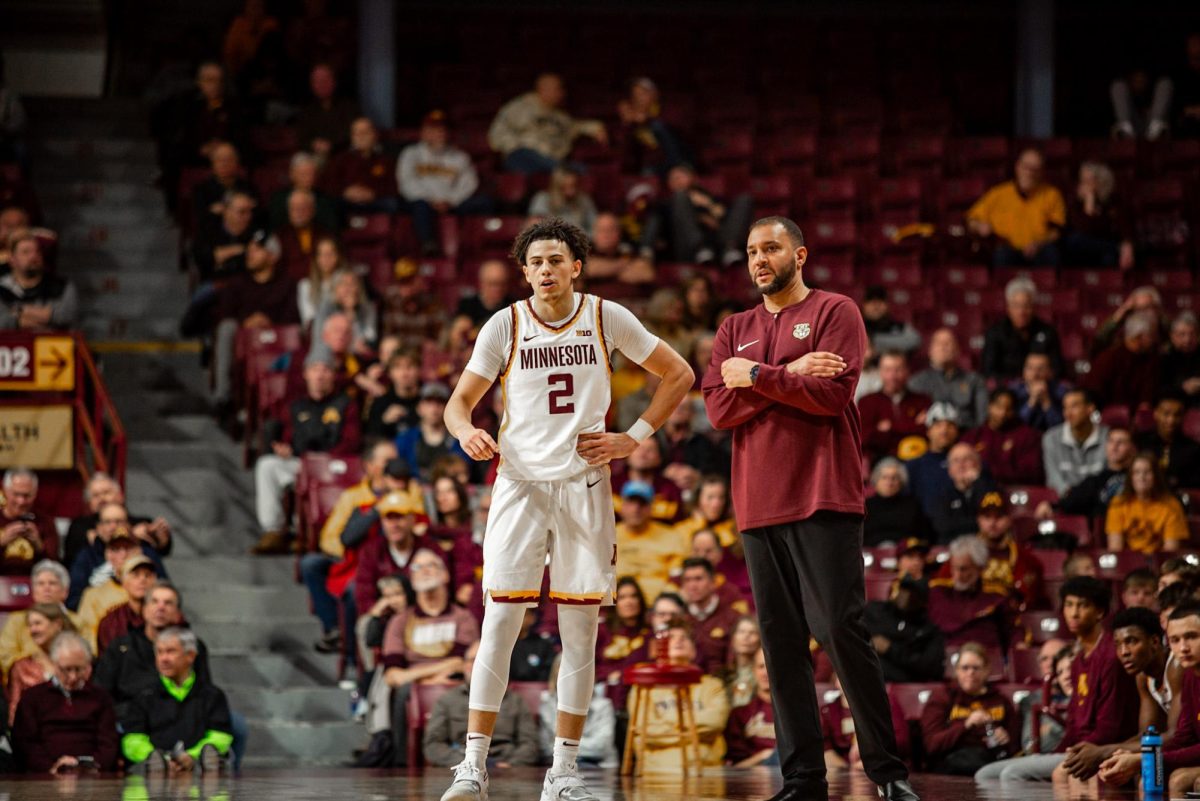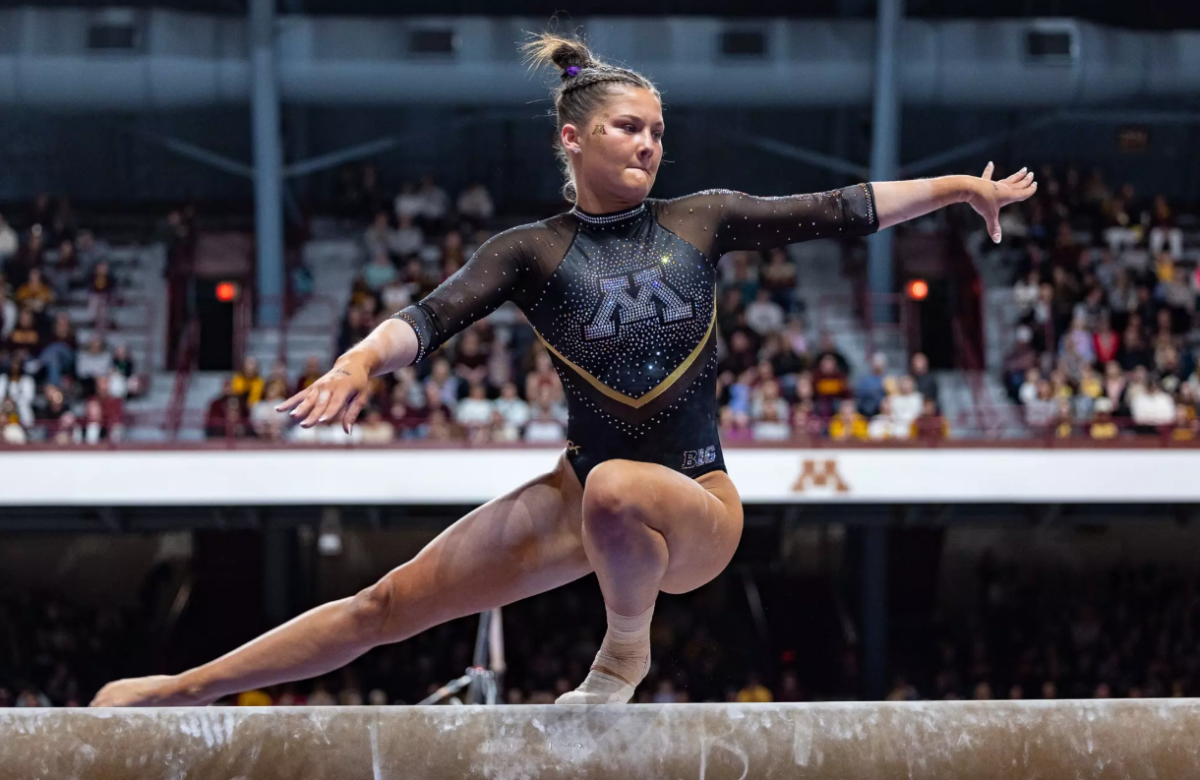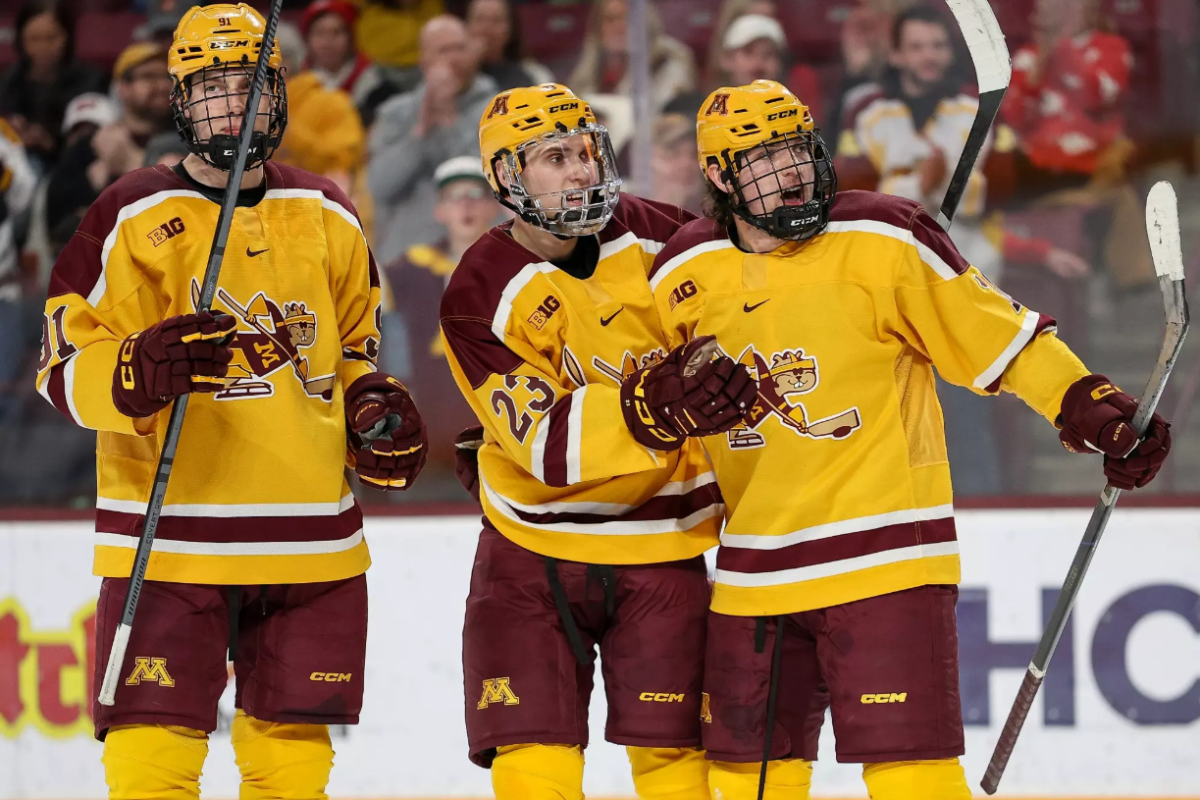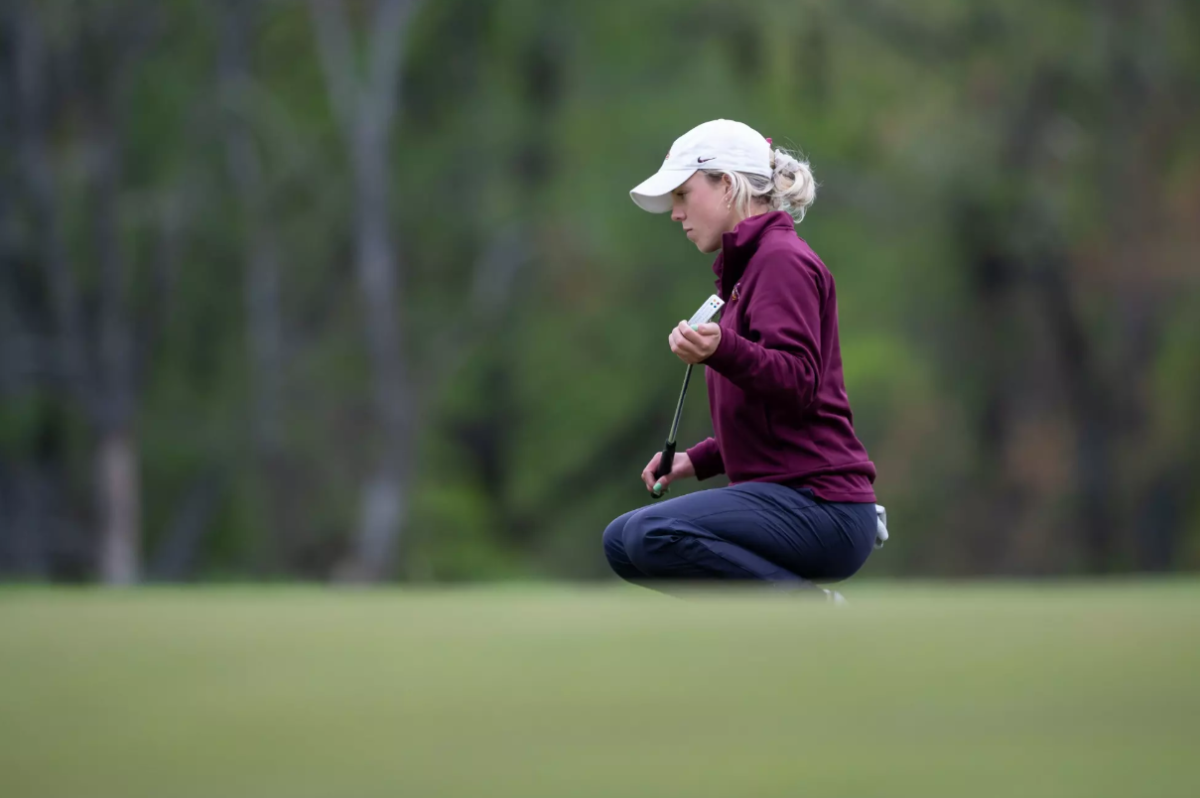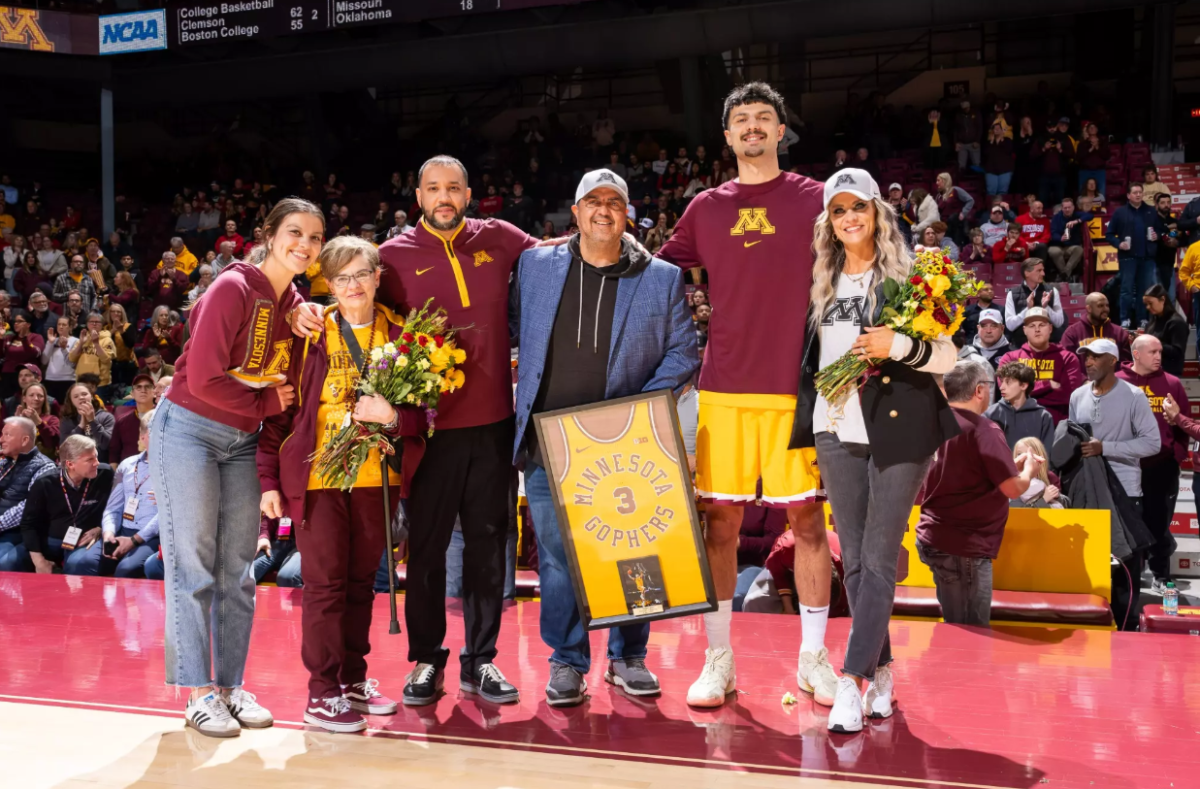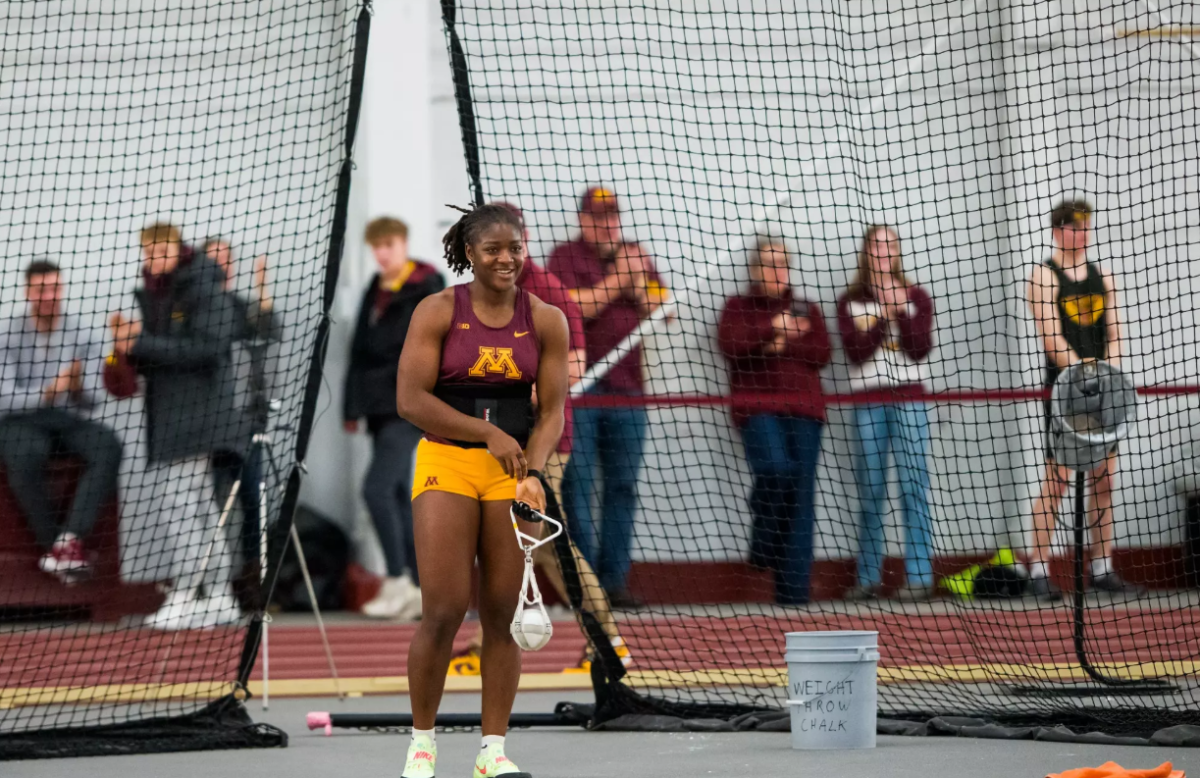When Bakary Konaté visited Minnesota as a recruit to watch the Gophers play Illinois last February, he was in for a surprise.
Konaté met Richard and Rick Pitino in Wichita, Kan., a few months earlier while enrolled at Sunrise Christian Academy under the assumption the father-son duo was recruiting him together — not for separate schools.
“That was surprising. When I came to visit [Minnesota], I saw [Richard Pitino] and I was like, ‘Oh, you’re here?’ He said, ‘I’m the head coach,’ and I said ‘Oh, really?’” Konaté said, laughing.
Louisville brought in center Anas Mahmoud, which led to Konaté committing to the younger Pitino in April.
The wiry 6-foot-11-inch freshman center came to Minnesota with little pressure to contribute right away, considering seniors Mo Walker and Elliott Eliason. But now Konaté is starting to play a bigger role for the Gophers, who are in need of a spark after a 2-6 start to conference play.
“At Nebraska, he had seven rebounds, I think, in 11 minutes in the first half, which was really just out of sheer talent alone because he’s got size,” Richard Pitino said. “It’s getting him reps. Obviously, the games are going to be close because it’s the Big Ten, but I think he can really help us.”
Jekyll and Hyde
Nothing jumps out as impressive in Konaté’s game log. His career-high is nine points against lowly Seattle University, and he racked up four fouls in just nine minutes of court time against North Dakota.
Watch him play and oftentimes things don’t look pristine, either.
After his nice first half against the Cornhuskers, Konaté failed to grab a rebound in the second period. In an 11-second span, he committed two fouls and turned the ball over twice — demonstrating flashes of brilliance and then stretches of ineptitude.
That’s just Konaté.
“We just kind of had to get him out of there,” Richard Pitino said. “He’s going to be a good player, but he just fouls everybody.”
At the beginning of the season, Konaté’s face lit up in shock when referees blew the whistle and called him for a foul.
Now, he’s owning up to it.
“I foul a lot,” Konaté said. “Sometimes, I don’t control my movement enough.”
After not playing in four of Minnesota’s first five Big Ten games, Konaté jumped Eliason on the depth chart and has tallied double-digit minutes in the three contests since.
“I think Bakary is going to be a great player. He’s got to learn a few things, but I think that goes for everybody,” Eliason said.
Konaté’s experience in Big Ten play is invaluable because he’ll likely start as center next year after Walker and Eliason’s eligibility runs out.
“I think it’s the perfect segue with [Eliason and Walker],” Rick Pitino said. “He’ll learn behind them and then be ready as a sophomore.”
From Africa to Minnesota
Konaté grew up in Bamako, Mali, the capital of the West African country, and was athletic from a young age.
Soccer highlighted his elementary school days, but when Konaté was 12 years old, he noticed the success his brothers were having with basketball. That’s when his sport of choice changed.
“I was lucky because my dad got a great education in Mali and then went to college in Europe,” Konaté said. “He always told me education comes first, but sport can give you the opportunity to get a great education.”
Konaté’s older brother Ibrahim, whom he calls a mentor, played for Boston University. Another pair of brothers, Lassana and Fousseini, took their talents to LeMoyne-Owen College in Memphis, Tenn.
Between two marriages, Konaté’s father had 15 children. Konaté said his oldest sibling is 34 years old and his youngest is 8 or 9.
Growing up in a crowded house, Konaté was no stranger to hand-me-downs. Still, there was nothing to complain about living in “big” Bamako.
“Everything was really OK because I didn’t have to worry about anything. I was in a good school, [and] my parents gave me everything I needed,” Konaté said.
As a teenager, Konaté moved to Spain where his basketball career gained steam playing for Club Baloncesto Gran Canaria.
He then spent one season at Sunrise Christian Academy in Kansas before moving to Minnesota, where he continues to grow as a player and adapt to another new language.
“Every time you speak to him, he tries to prove he can speak English, and he speaks for like five paragraphs,” Richard Pitino said.
Tantalizing size
After the Gophers beat Minnesota-Duluth in an early-November exhibition, Konaté stood at his locker and rubbed lotion on his face. His catcher’s mitt-like hands stretched from the bottom of his chin to far above his forehead.
“He really is big,” Richard Pitino said later, his eyes widening.
Konaté’s size is what makes him such a tantalizing prospect. Sure, sometimes he throws the ball away and he fouls regularly, but underneath the blemishes of young Konaté’s game, his supreme length and a chiseled physique could come to life with time.
Walker calls it Konaté’s “senior body.”
“He’s stronger than I was as a freshman,” Walker said.
Konaté has already drawn comparisons to Minnesota Timberwolves center Gorgui Dieng, whom Richard Pitino coached while an assistant on his father’s staff at Louisville.
Rick Pitino said Konaté’s style of play — a long and athletic rim protector that’s a natural rebounder — is similar to Dieng’s. Before the season started, Richard Pitino said Konaté was further along than Dieng was as a freshman.
He hit jump shots in last Saturday’s victory against Illinois and one week earlier versus Rutgers.
“He’s got a nice little midrange jump shot,” Walker said. “He shoots it up high, seven feet, so it’s tough to challenge and contest.”
If Konaté can cut down the fouls, limit his turnovers and continue to develop, Richard Pitino will have a strong, big man to build his frontcourt around.
After bouncing around and finding his way to Minnesota, Konaté has come far.
But he still has a long way to go.
“It’s going to take a while for him,” Richard Pitino said. “I think he’s got a big-time, big-time ceiling.”


